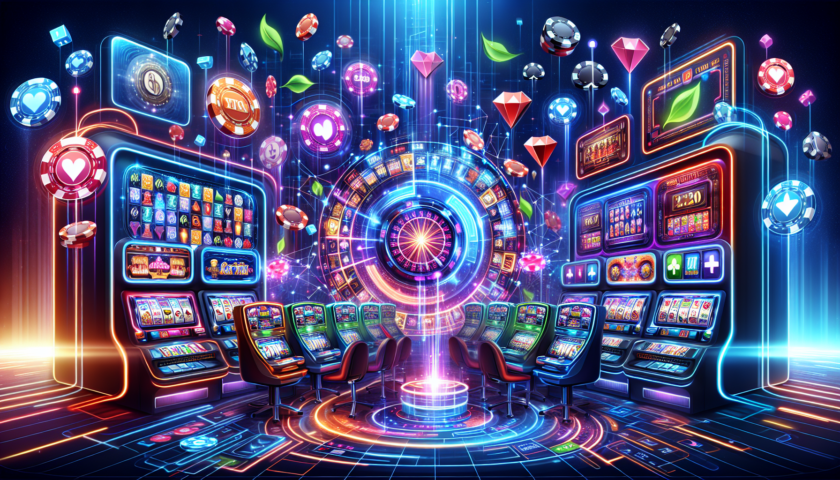Online gaming platforms have evolved significantly over the years, moving beyond simple multiplayer games to become immersive ecosystems that encompass gaming, social interaction, streaming, and even professional careers. As technology continues to advance, these platforms are shaping the future of entertainment and digital interaction. In this article, we explore some of the most unique aspects of Hoki805 online gaming platforms that set them apart from traditional gaming experiences.
1. Cross-Platform Play: Breaking Down Barriers
One of the most significant innovations in recent years is the rise of cross-platform play. In the past, players were often confined to gaming with others on the same console or operating system. With the introduction of cross-play, gamers on different devices — such as PC, PlayStation, Xbox, and mobile — can now compete and collaborate in the same virtual spaces. This trend is transforming how multiplayer games are played, increasing accessibility, and expanding the potential player base for game developers.
Popular games like Fortnite, Minecraft, and Rocket League have set the stage for cross-platform gaming, and this feature is now being adopted by an increasing number of titles. For gamers, this means no longer needing to invest in multiple consoles or worry about which platform their friends are using to join in on the fun.
2. Cloud Gaming: Play Without Limits
Cloud gaming platforms such as Google Stadia (though now discontinued), Nvidia GeForce Now, and Xbox Cloud Gaming (formerly Project xCloud) represent a revolutionary shift in how games are played. Rather than relying on expensive hardware, these platforms allow users to stream high-quality games directly to their devices, whether it’s a smartphone, tablet, laptop, or smart TV. This reduces the need for powerful gaming consoles or PCs and makes gaming more accessible to a broader audience.
Cloud gaming offers immense convenience. Players can access their games from virtually anywhere with a stable internet connection, and the game is streamed in real-time, eliminating the need for downloads or installations. For developers, this platform democratizes access to their games, opening up new opportunities for global audiences.
3. Virtual Reality (VR) and Augmented Reality (AR) Gaming: The Next Frontier
While still in the early stages of adoption, Virtual Reality (VR) and Augmented Reality (AR) gaming are beginning to reshape the online gaming experience. Platforms like Oculus (Meta), Sony PlayStation VR, and HTC Vive provide players with an immersive experience that takes them beyond traditional screen-based interactions. VR games like Half-Life: Alyx or Beat Saber allow players to physically move within the game world, creating a more lifelike, engaging experience.
On the other hand, AR games like Pokémon Go have gained mainstream popularity, combining digital content with the real world through smartphones and wearables. These innovations open up new forms of social gaming, where players can interact with both virtual and physical environments in ways that were once unimaginable.
4. Game Streaming and Content Creation: A New Era of Social Gaming
Gaming platforms have increasingly integrated social media and content creation tools, allowing users to become creators themselves. Platforms like Twitch, YouTube Gaming, and Facebook Gaming offer gamers a space to live-stream their gameplay, interact with viewers in real-time, and even earn a living through sponsorships, donations, and ad revenue.
This has led to a shift in how gaming is perceived in society, from just a pastime to a full-fledged career for many. Content creators have become influencers, building personal brands and communities within their gaming niches. The rise of esports has further solidified this change, with professional gaming tournaments becoming major events that attract global audiences.
5. Metaverse: The Ultimate Online Gaming Platform
The concept of the Metaverse — a virtual world where players can interact, socialize, play games, and conduct business — has captivated the imagination of many. Platforms like Roblox, Second Life, and Decentraland allow users to create and customize virtual spaces, attend concerts, buy virtual goods, and even earn real-world money. These platforms take the idea of gaming beyond traditional gameplay, offering expansive digital ecosystems where the line between gaming, entertainment, and social interaction is blurred.
